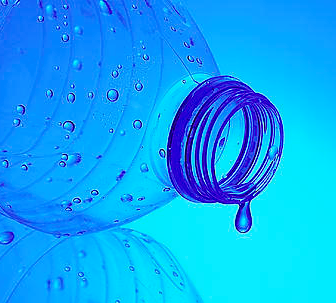the very last drop
We're out of water. It's one of the driest "rainy" seasons on record in West Africa, so there wasn't much water to begin with.
Then, a few days ago, the pump that pumps water from the Oti river into the town's water treatment center broke, so they shut off all running water. The only option was for townspeople to draw water from wells scattered across town -- which are contaminated with parasites and bacteria.
The hospital compound had a 3-day supply of filtered water, but the filtration system broke, so then we had a 3-day supply of unfiltered water, which had to be boiled before we could ingest it. Then even the unfiltered water ran out, and now there's nothing.
Pregnant women are going into pre-term labor because they're dehydrated. New moms are running out of breast milk because they're drinking so little fluid, their bodies are not able to produce milk.
Throughout the hospital and the housing within the compound, there's no running water.
The pharmacist had to bike into town to buy water to reconstitute liquid antibiotics with. The stores were all closed because it's the Muslim holiday Tabaski, so she had to buy bottles of water from a bar.
At the hospital, you can't wash your hands at the nurses station -- you can swish them around in a bowl of water that's been sitting on the counter for two days, or you can use hand sanitizer. You can't do laundry or wash dishes or fill up your water bottle from the tap. You can't even flush a toilet.
When the water shortage first began a few days ago, we all went by the well-known bathroom saying,
If it's yellow, let it mellow.
If it's brown, flush it down.
Now, the saying is more like,
If it's yellow, let it mellow.
If it's brown....well....unfortunately, you're gonna have to let that mellow, too.
The buildings smell bad. We all smell bad -- because no one's been able to shower for days.
Another physician assistant and I were desperate, so we went for a late-night swim tonight so we could crawl into bed feeling not quite as sticky and sweaty as we were earlier today.
Never in my life have I been in a place where, for days in a row, I turned on the spigot and nothing came out. Never in my life have I wondered where my next sip of drinking water was going to come from. Never have I rationed the amount of water I drank, wondering how dehydrated I could get and still function.

I was totally cool with the idea of coming to Africa to love and care for the people that Jesus calls the least of these.
But this is waaaaaaaaay more challenging than that.
I'm not just loving the least of these; I'm becoming like the least of these.
I'm not just here for the Togolese people; I am here with them.
I don't just have sympathy for people who don't have access to clean, readily-available drinking water; I have empathy for them. Even more than that -- I can commiserate with them because I'm here, experiencing their hardship with them in real time.
I thought I was a compassionate person before, but WOW. This is a whole new level.
This week, as I've been experiencing the cost of true compassion, I was remembering that the word compassion comes from the Latin words "co" and "passion," and it literally means to suffer with.
I think a lot of us are good at sympathy, maybe even empathy. But what does it mean for us to go as far as to suffer with the least of these, to suffer with the people Jesus loves most?
I've beent thinking about what it means for me to have compassion -- not only here in Africa, but also when I get back to the U.S.
What does it mean to not only empathize with the people who live in the projects, but to suffer with them by living there, too?
What does it mean to not only empathize with people who can't afford the luxury of a car, but to suffer with them by giving up your car and taking public transportation, too?
What does it mean to not only empathize with people who are economically oppressed, but to sacrifice your income to live below the poverty, too?
It's scary to think of compassion in its costliest, most radical form. But when Jesus invited us to follow in his steps, I think this was the life he was calling us to.
When Jesus, Immanuel, God With Us, came to earth, he didn't just show empathy for the human condition. He suffered with us, he suffered for us. He took the cup of hardship, loss, grief, pain and death and he drank it to the dregs.
And now he calls us to be like him, to love the world until it costs us something -- maybe until it costs us everything. To take the cup of suffering and drink it all, down to the dregs.
I don't know what radical compassion will look like in your life, but for me, today, here in Togo, practicing compassion means taking up my half-empty water bottle and following in Jesus' steps by loving people, caring for patients, and sharing with them in their hardships until I've drunk it all, down to the dregs.
Down to the very last drop.
***
Many people who have followed my blog have asked how they can contribute to my needs and the needs of the hospital.
To give to the hospital's patient care fund, which covers the hospital bills of patients who can't afford to pay for care, you can donate here.
To give toward my personal expenses, you can give here, using the e-mail address sarahthebarge@hotmail.com.
Thanks so much for your continued love, support, "likes," reposts, comments and prayers!!!